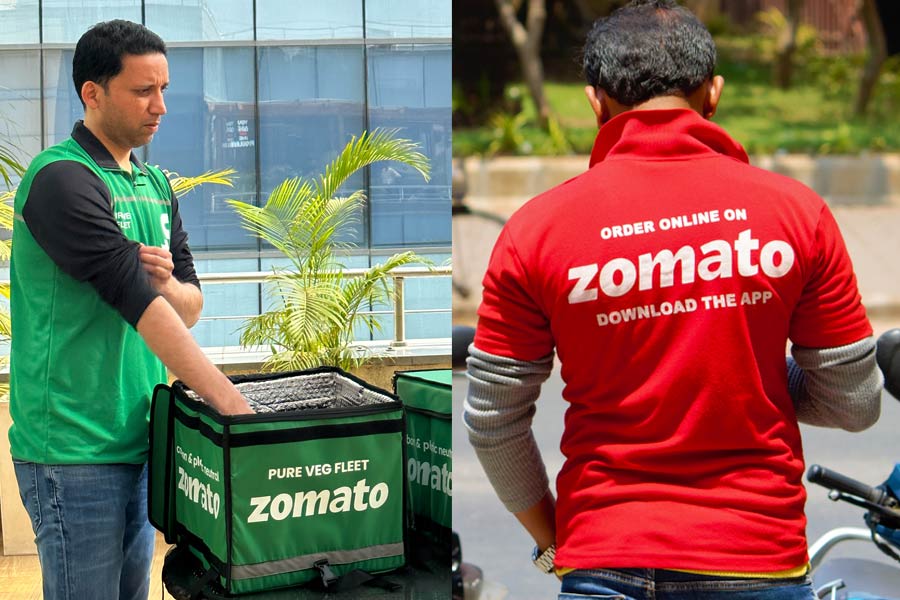When a food delivery company caters to food segregation, is it just a business booster? Zomato, which had decided on green uniforms in place of its usual red ones for delivery personnel who would ferry food ordered on the company’s new ‘Pure Veg Mode’ — this mode has now been renamed to ‘Veg Only’ — had claimed that the proposed ‘Pure Veg Fleet’ had not been meant to serve any religious or political end, but only a food preference. The smell of non-vegetarian food might taint a vegetarian customer’s package in the delivery person’s cargo. Hence the ‘pure veg’ fleet would go solely to those restaurants where no flesh, fish or fowl was served. This would satisfy customers who do not eat in such places, or at the homes of non-vegetarian folk or of people of a religion with different dietary rules. The decision was based on the CEO’s claim that India has the highest percentage of vegetarians in the world. The impression was that most of India was vegetarian, so this population’s desire for ‘purity’ must be met. The scathing criticism on social media — a business threat? — compelled the company to withdraw the green uniforms. But there will remain a veg mode with deliveries by a designated fleet in red uniforms so that the latter are not banned from gated communities and other vegetarian-dominated areas by being associated only with meaty meals. Neither will their customers be cast out of ‘purity’-driven surroundings.
The company’s claims are ultimately based on a politics-inspired social bias that tries to establish that vegetarianism is ‘pure’ and expresses the true character of the majority community, and that most Indians are vegetarian. The National Family Health Survey-5, however, showed that over 80% of the men and 70% of women between 15 to 49 years of age eat fish, meat and eggs daily, weekly or occasionally: their numbers have increased substantially in the last six years. Even states marked by Right supremacist values such as Gujarat and Uttar Pradesh have more people turning non-vegetarian, thus making nonsense of Bharatiya Janata Party governments’ efforts to remove eggs from midday meals, to shut down non-vegetarian food shops on the main thoroughfares of Ahmedabad, for instance, or prohibit the sale of flesh or fish on Ram Navami so as not to hurt the majority community’s sentiments.
At the heart of this lies religious discrimination — the false belief that only certain minority communities eat flesh. The discrimination is also casteist: it seeks to link certain Brahmanical ideas with notions of purity. The refusal of some schoolchildren to have midday meals cooked by persons from underprivileged castes is a vicious manifestation of this. Will customers refuse to accept food from personnel of other castes and communities then, or will delivery persons refuse to carry food they consider ‘impure’? Encouraging discrimination through food is one of the worst ways of exacerbating divides in society and of sending the country backwards into an uncivilised era.











